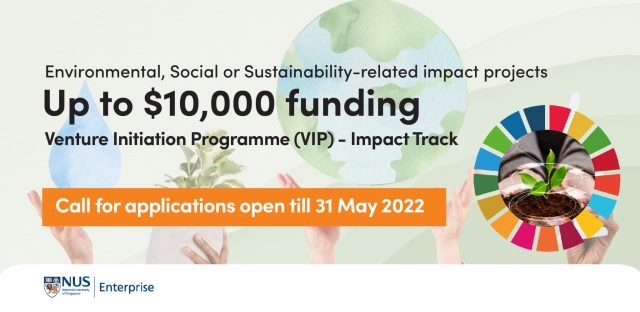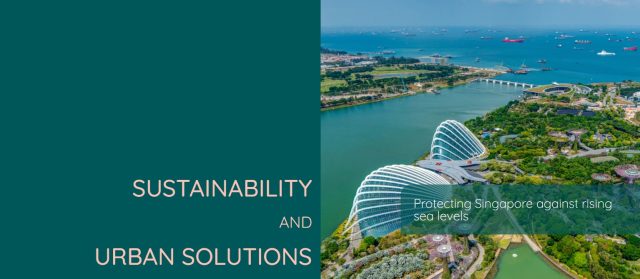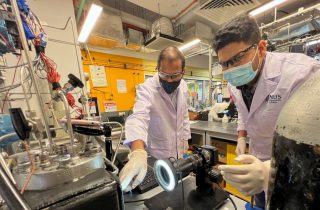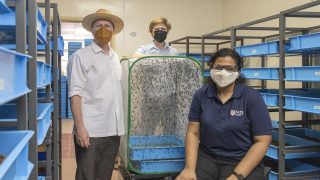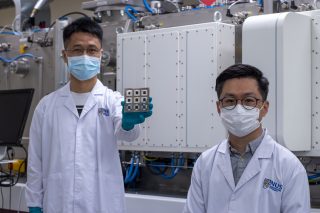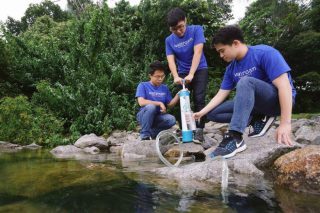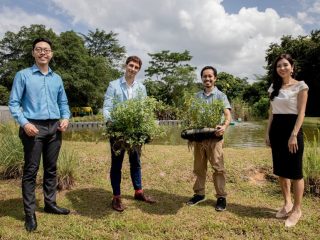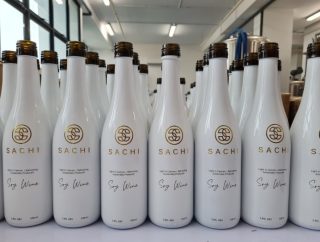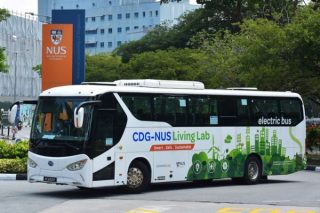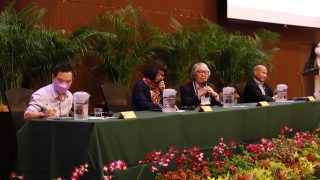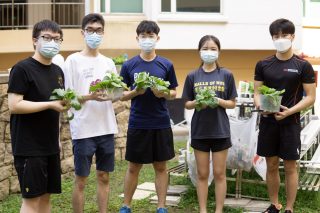
|
| |
|
|
Sustainability research at NUS
Through cutting-edge research, NUS aims to enhance the climate resilience and sustainability of Singapore into the next century through system-level mitigation and adaptation solutions. It seeks to combine scientific and technological capabilities with design-led research and provide thought leadership in shaping the physical form of future Singapore through evidence-based solutions.
The NUS Sustainability Research website provides an overview of the University’s sustainability research vision and objectives, capabilities and thought leadership, and key research domains.
|
| |
RESEARCH: Creating Sustainable Impact
|
| |
NUS research shows carbon dioxide could be stored below ocean floorThe experimental findings, funded through the Singapore Energy Centre, could spur further developments in carbon capture and storage technologies to combat climate change and help the world reach carbon neutrality. Read More ›
|
|
|
| |
| |
Fully circular urban food system to increase Singapore’s food securityAs part of a project funded by the National Research Foundation, an interdisciplinary team is developing a blueprint to integrate sustainable food waste management and food production in urban settings using tropical black soldier flies. Read More › |
|
|
| |
| |
NUS research team sets new efficiency record for solar cell technologyThe solar cells made using perovskite and organic materials achieve a power conversion efficiency approaching that of conventional silicon solar cells, and paves the way for flexible, light-weight, low cost and ultra-thin photovoltaic cells with wide-ranging applications. Read More › |
|
|
| |
| |
INNOVATION: Sparking Sustainable Enterprise
|
| |
Wateroam wins water champion award in global sustainability competitionThe start-up, formerly incubated at The Hanger, was lauded for its lightweight and portable water filtration system inspired by a simple bicycle pump, which has provided clean water to over 200,000 people in 38 countries to date. Read More › |
|
|
| |
| |
Using plastic and glass waste to make floating garden of edible plantsThe NUS alumni-student team received a grant under the Zero Waste Testbed Initiative to create chinampas or floating gardens for edible plants using recycled water bottles and discarded beauty product containers. Read More › |
|
|
| |
| |
Made in Singapore: The world’s first wine… made from soyMade from soy whey, Sachi began as a lab experiment in sustainable food production but is now available as a commercial alcoholic beverage. Read More › |
|
|
| |
| |
EDUCATION: Developing Talent in Sustainability
|
| |
New Second Major in Sustainable Urban DevelopmentIt seeks to provide students with broad exposure to the field of urban sustainability and equip them with interdisciplinary knowledge and skills to address the most pressing issues in urban development and human impacts in cities in the context of the changing climate. Learn More › |
|
|
| |
| |
NUS Business School launches Master’s programme in Sustainable and Green FinanceOffered in collaboration with the Sustainable and Green Finance Institute at NUS, this is the first Master of Science programme offered among leading Asian universities that focuses on sustainable and green finance. Learn More › |
|
|
| |
| |
OPERATIONS: Building a Sustainable Campus
|
| |
Electrification of NUS shuttle serviceThe University will be electrifying its entire fleet of internal shuttle buses. It has awarded a S$30m contract to ComfortDelGro to operate the NUS electric shuttle service, which will begin operations from third quarter of 2022. Learn More › |
|
|
| |
| |
ENGAGEMENT: Fostering a Culture of Sustainability
|
| |
The marathon race to net-zero: How Singapore and the world are faringA business leader, diplomat and scientist discuss Singapore’s role in the fight against climate change and how it relates to COP26, the Glasgow summit that raised the bar for climate goals worldwide, at the 41st Tembusu Forum. Read More › |
|
|
| |
| |
From seed to table: Vertical farm in Pioneer House enjoys first harvestPioneer House rolls out innovative programmes such as community gardening and composting to develop a familial residential community. Aligned with the theme of frugality and sustainable living, they encourage residents to contribute meaningfully to the betterment of self and the community. Read More › |
|
|
| |
|

